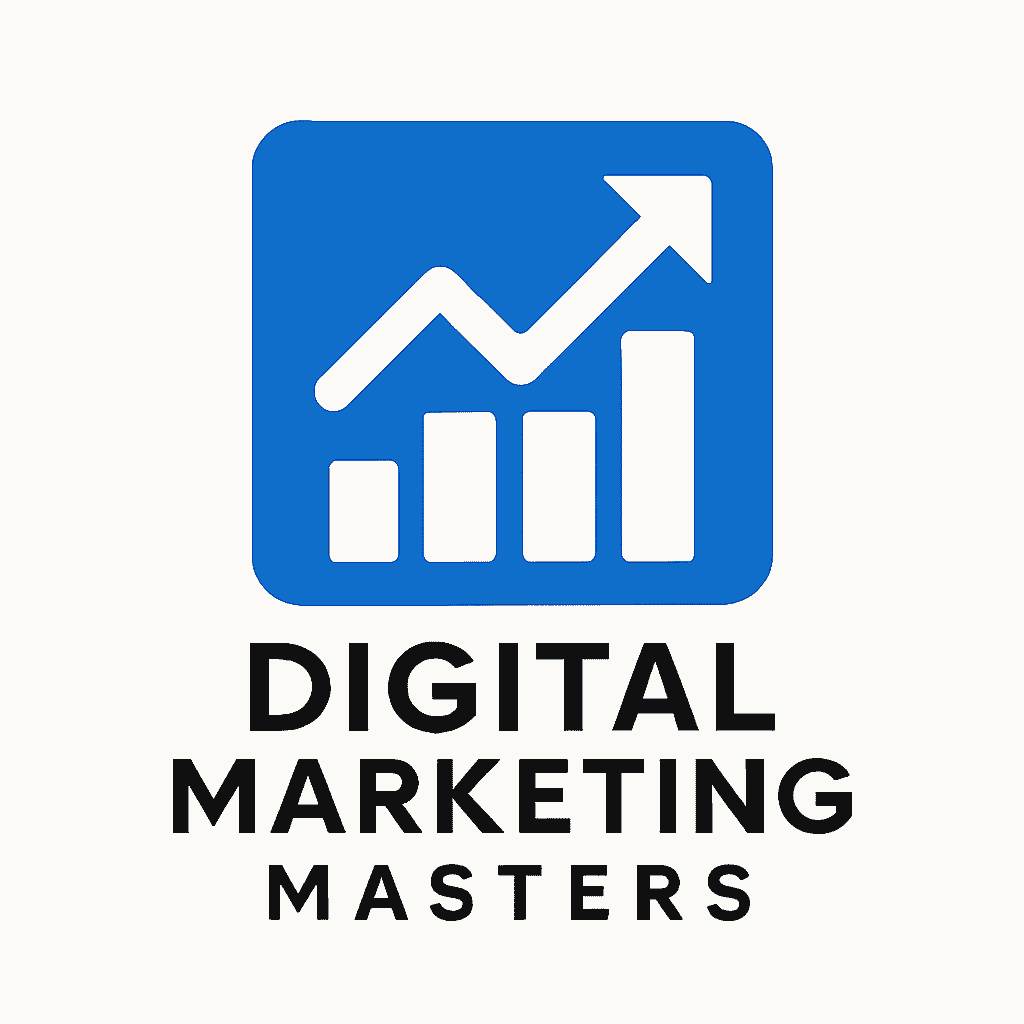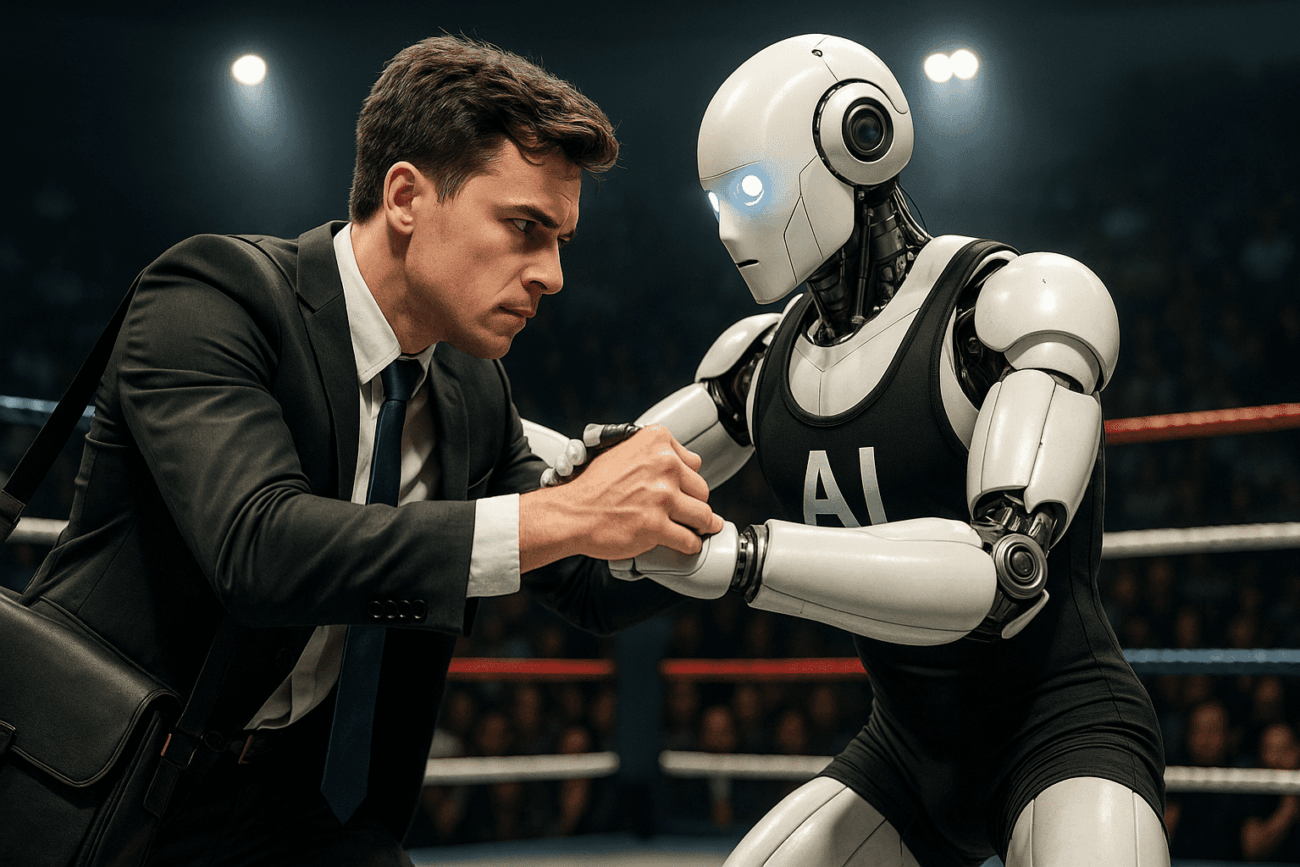It’s Monday morning. You’re sipping your coffee, scrolling through your inbox, when you see yet another article screaming that AI is taking over the world. Headlines pop up everywhere: “Marketers Beware: AI Is Coming for Your Job!” or “AI-Powered Tools That Make Humans Obsolete!”
Your heart skips a beat. You wonder, “Is it true? Will AI really replace my marketing job?”
The answer, like most things in marketing, is: it depends.
I’ve been in marketing long enough to see trends come and go. Remember when everyone thought social media was just a fad? Or when email marketing was declared dead at least five times? Each time, we adapted, learned, and ultimately grew stronger as marketers.
But AI feels different, doesn’t it? It’s not just another platform or channel. It’s technology that learns, writes, and even strategizes. It can analyze data faster than any human and personalize content at scale. Suddenly, that content plan you spent weeks on can be done in minutes by a tool with a quirky name like Jasper, ChatGPT, or Copy.ai.
So, let’s take a breath. Before you panic and start updating your resume, let’s dive into what’s really happening. Will AI replace your marketing job? Or will it just change it? And most importantly, what can you do to stay relevant and thrive in this new landscape?
First, Let’s Talk About What AI Can Actually Do
AI in marketing isn’t one single thing. It’s a collection of tools, algorithms, and platforms that automate, predict, and even create content. Some of these are game-changers, while others are more like fancy macros that save you a few minutes.
Here are some ways AI is already making its mark:
- Content Generation: AI can generate blog posts, ad copy, and even social media captions in seconds. Tools like Jasper and ChatGPT are the talk of the town.
- Data Analysis: AI can crunch massive datasets, find patterns, and deliver insights that help marketers make smarter decisions. Think Google Analytics on steroids.
- Personalization: AI can help tailor content and offers to specific audiences, boosting engagement and conversions.
- Automation: From scheduling posts to sending emails at the perfect time, AI automates tasks that used to eat up hours of your day.
It’s impressive stuff. But here’s the key point: AI is a tool. It’s not the entire marketing department.
The Human Element AI Can’t Replace
As sophisticated as AI is becoming, it still struggles with the human side of marketing. Let me explain.
Marketing isn’t just data and words. It’s about empathy, creativity, and strategy. It’s about understanding people, their motivations, and their pain points. It’s about building relationships and trust.
An AI might be able to write a solid email sequence, but can it capture the subtle nuance of a brand voice that makes readers feel like they’re talking to a friend? Can it brainstorm a campaign that connects with your audience on a gut level? Can it anticipate the next big trend that nobody saw coming?
AI can’t walk into a brainstorming session and say, “What if we did something that’s never been done before?” It can only remix what’s already been done.
Think about the best marketers you know. The ones who can turn a tired product into a must-have with a killer hook. The ones who sense cultural shifts before they hit the mainstream. The ones who can build a brand that feels like a movement, not just a business.
AI can’t replicate that. It can support it. It can accelerate it. But it can’t replace it.
Real Talk: Will AI Take Some Marketing Jobs?
Let’s be honest. Some tasks that marketers do today are ripe for automation. AI is already writing blog intros, generating social media posts, and even creating product descriptions.
If your job is 100 percent writing short-form content that follows a predictable formula, you might be at risk of seeing AI move in. The same goes for entry-level data analysis and repetitive reporting tasks.
But most marketing roles aren’t that one-dimensional. Even content marketing, which is one of the first areas people think AI will replace, is more than just writing words. It’s about strategy, brand alignment, SEO research, distribution, and analysis. AI can handle some of those pieces, but not all of them.
And think about the other branches of marketing: brand management, creative direction, customer relationships, product launches, partnership building. AI can help, but it can’t lead.
The Rise of the Human-AI Hybrid Marketer
So, what’s the future look like?
The best marketers won’t be the ones who fight against AI or refuse to use it. They’ll be the ones who embrace it and figure out how to leverage it to work smarter, not harder.
Imagine being able to generate a first draft of a blog post in minutes and then spend your time refining it, adding your unique insights, and making sure it aligns with your brand voice. Imagine having AI analyze campaign data overnight and waking up to a report that tells you exactly what’s working and what’s not.
AI isn’t here to take your job. It’s here to take the boring parts of your job and give you time to focus on the parts that matter most.
How to Make Sure AI Doesn’t Replace You
Alright, so what can you do to future-proof your career? Let’s talk about that.
1. Learn to Work with AI
If you haven’t already, start experimenting with AI tools. Learn their strengths and limitations. Figure out how they can help you save time and add value.
Think of AI as your assistant. It’s great at generating ideas, analyzing data, and automating tasks. But it still needs you to provide the strategic direction and human touch.
2. Focus on Strategy and Creativity
The more strategic and creative your role, the safer you are from being replaced. AI can mimic content, but it can’t develop a campaign that aligns perfectly with your brand’s values or that taps into an emerging cultural trend.
Position yourself as the person who sees the big picture. Be the one who connects the dots that others miss.
3. Develop Soft Skills
Communication, empathy, and leadership are the skills that AI can’t replicate. The ability to inspire a team, build relationships with clients, and understand human emotions will always be in demand.
Invest in yourself as a leader and a collaborator. These skills make you invaluable, even in an AI-enhanced workplace.
4. Stay Curious and Keep Learning
The marketing landscape is always changing, and AI is just the latest wave. Stay curious about new tools and trends. Learn how to adapt. Be willing to experiment, fail, and try again.
The marketers who survive and thrive are the ones who keep evolving.
The Bottom Line
So, will AI replace your marketing job?
For some, maybe. For those who stick to repetitive tasks that can be easily automated, it’s a real possibility. But for most marketers, AI will be a powerful ally: a tool that helps you do more, faster, and better.
The key is to lean into what makes you uniquely human. Your creativity, empathy, and strategic thinking are your superpowers. AI can’t replicate that.
Use AI to free up your time so you can focus on what you do best: building relationships, crafting stories, and creating campaigns that resonate with real people.
Because in the end, marketing is about people. And people still want to connect with other people.
So, grab your coffee, fire up that AI tool, and get to work. Your job isn’t going anywhere, but it might just get a whole lot more interesting.

